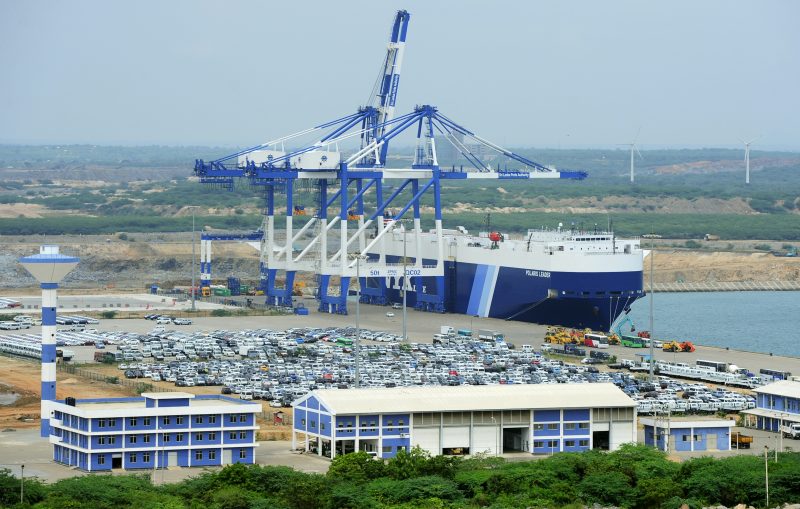Sri Lanka wins record foreign investment in oil project
The new oil refinery will be built near the port of Hambantota (LAKRUWAN WANNIARACHCHI)
Colombo (AFP) – Sri Lanka announced Tuesday that an overseas joint venture had committed $3.85 billion to a new oil refinery — the single largest foreign investment in the country’s history.
The Board of Investment of Sri Lanka said construction would begin this weekend on the refinery and storage facility jointly financed by Oman’s Ministry of Oil and Gas and a Singapore-registered company.
Deputy international trade minister Nalin Bandara said he expected the refinery, which will eventually produce 200,000 barrels a day, to be fully operational within four years.
“This is the biggest single foreign investment (in Sri Lanka’s history),” he told reporters in Colombo.
It is more than double the next largest foreign investment — a $1.4 billion land reclamation project next to Colombo port.
Oman will fund 30 percent of the new oil project while Singapore-based Silver Park International, which is majority owned by a business interest in India, will finance the rest.
It is being constructed near the port of Hambantota, which was leased to a Chinese state-owned enterprise in 2017 for 99 years after Sri Lanka was unable to service a loan from Beijing.
The circumstances surrounding China’s acquisition of that port, along one of the world’s busiest shipping lanes, generated concern in neighbouring India and beyond over Beijing’s expanding presence in the Indian Ocean.
Bandara said new lines of cash pouring into the region showed foreign investors were not deterred by that experience.
“The latest investment shows that companies in other countries too are interested in going to Hambantota,” Bandara said.
Sri Lanka attracted a record $2.37 billion last year in foreign direct investment, up 38 percent compared to the previous year, official figures show.
Several major proposals were put on ice late last year as Sri Lanka reeled from a constitutional crisis, with rival factions of government claiming the right to rule the country.
Calm was restored after the Supreme Court ruled President Maithripala Sirisena acted illegally when he sacked his prime minister and parliament, and called snap elections.
Sirisena’s opponents blamed the president for unnerving foreign investors at a time Sri Lanka desperately needs to spur its ailing economy.
Disclaimer: This story is published from a syndicated feed. Siliconeer does not assume any liability for the above story. Validity of the above story is for 7 Days from original date of publishing. Content copyright AFP.


